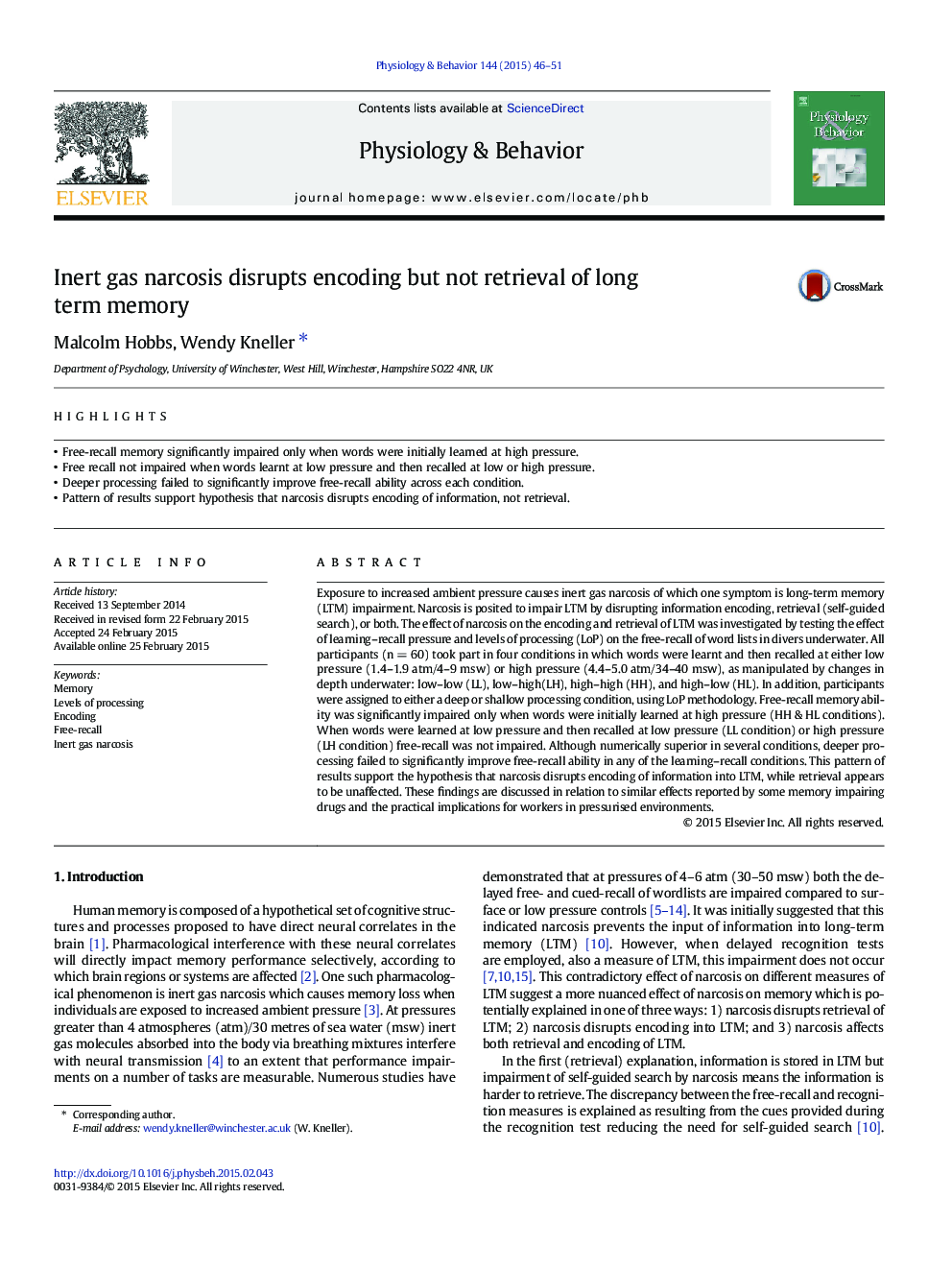| Article ID | Journal | Published Year | Pages | File Type |
|---|---|---|---|---|
| 5923633 | Physiology & Behavior | 2015 | 6 Pages |
â¢Free-recall memory significantly impaired only when words were initially learned at high pressure.â¢Free recall not impaired when words learnt at low pressure and then recalled at low or high pressure.â¢Deeper processing failed to significantly improve free-recall ability across each condition.â¢Pattern of results support hypothesis that narcosis disrupts encoding of information, not retrieval.
Exposure to increased ambient pressure causes inert gas narcosis of which one symptom is long-term memory (LTM) impairment. Narcosis is posited to impair LTM by disrupting information encoding, retrieval (self-guided search), or both. The effect of narcosis on the encoding and retrieval of LTM was investigated by testing the effect of learning-recall pressure and levels of processing (LoP) on the free-recall of word lists in divers underwater. All participants (n = 60) took part in four conditions in which words were learnt and then recalled at either low pressure (1.4-1.9 atm/4-9 msw) or high pressure (4.4-5.0 atm/34-40 msw), as manipulated by changes in depth underwater: low-low (LL), low-high(LH), high-high (HH), and high-low (HL). In addition, participants were assigned to either a deep or shallow processing condition, using LoP methodology. Free-recall memory ability was significantly impaired only when words were initially learned at high pressure (HH & HL conditions). When words were learned at low pressure and then recalled at low pressure (LL condition) or high pressure (LH condition) free-recall was not impaired. Although numerically superior in several conditions, deeper processing failed to significantly improve free-recall ability in any of the learning-recall conditions. This pattern of results support the hypothesis that narcosis disrupts encoding of information into LTM, while retrieval appears to be unaffected. These findings are discussed in relation to similar effects reported by some memory impairing drugs and the practical implications for workers in pressurised environments.
